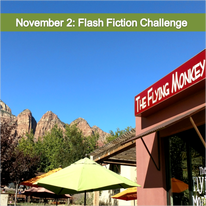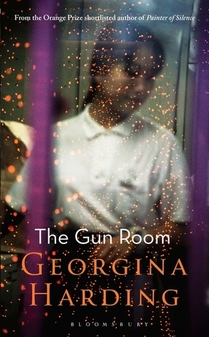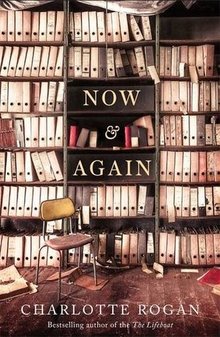Jonathan, a young English photographer, cadges a lift on a US army chopper into a burning village in Vietnam. There he takes the shot that makes his career: a soldier staring blankly with his back against a wall. When published, the photograph earns him the money to move on to Japan, where he tries to forget the war in his focus on urban modernity. But even here, the past haunts him: his relationship with smiley brightly-dressed girlfriend has a darker side when she introduces him to her grandfather who fought the British in Burma, just as Jonathan’s father fought the Japanese. Not only that, the soldier in his celebrated photograph has a history, a life, an identity beyond what Jonathan captured through his lens. As he makes peace with his own family history, Jonathan gains a deeper understanding of what that picture meant for him.
The Gun Room is a gently poetic, understated novel, not only about war and trauma and healing, but about creativity in how the experiences that have shaped us impact on where we direct our gaze, and about how being an outsider can be integral to our identity if we feel estranged from our own biographies. (Although it features only tangentially in this novel, Jonathan’s visit to a temple sparked my response to the flying monkeys flash fiction prompt.) Thanks to Bloomsbury for my review copy.
#############################################################
It isn’t whether or not man is warlike. Of course he is. It isn’t whether or not the system works to sustain itself. Of course it does. So the question is not whether it is even possible to be outside the system or whether man is doomed to be a cog in a killing machine, it … It is whether it is possible to be both moral and …
Maggie Rayburn is an ordinary wife and mother who is transformed into a political activist when she discovers evidence of high-level cover-ups and state-sanctioned injustice through her work as a secretary, first in a munitions plant and then in a prison. Hundreds of miles away in Iraq, Captain Penn Sinclair’s hasty orders, intended to maintain discipline after all leave has been cancelled, have disastrous consequences for the soldiers under his command. Back home in the USA, he reunites with three survivors to set up a website exposing the truth about the war.
Although Maggie and Penn never meet, their paths intertwine through another of the characters who is supportive of both their endeavours.
Now and Again is an ambitious, witty and angry novel with a large cast of characters. With its multiple points of view, it takes a little getting into, but I found it an engaging and well-crafted story with some exquisite prose. I was a little sceptical about Maggie’s political awakening – so out of step with her neighbours in smalltown Red Bud – but could just about accept her as a bright woman in a job beneath her abilities looking to spread her wings as her son approaches adulthood. However, I loved (if you can love something reflecting painful reality) the depiction of the various adjustment difficulties of the returning soldiers (especially Danny’s voice hearing) and the sadly all too realistic account of his diagnosis being changed from PTSD to personality disorder to reduce the burden on the benefits budget. Thanks to Fleet for my review copy.
The trauma of the homecoming soldiers reminded me of That Dark Remembered Day, but initially I found little connection with Charlotte Rogan's debut novel, The Lifeboat (not that there needs to be one). Then it struck me that both are about moral ambiguities, and both feature prisons (as does Margaret Atwood’s latest). I’m capitalising on the prison theme to link to my latest short fiction publication: "Across the Table" published by Fictive Dream, bringing my short story publication tally to 70 (so still significantly greater than my age).

Swinging from trees, scampering over stupas, stealing snacks from tourists, offerings from pilgrims. Scrambling up stone steps to assemble on the tiled roofs to pick the lice from each other’s fur and mock us, their cousins, our movements so ungainly, so slow.
I came here seeking solitude, the peace to heal a life gone astray. I’d leave perhaps with answers, a tidier mind. I had as much chance of that at the zoo.
I sit and watch and, little by little, their mischief makes me smile. They’ll teach me if I let them. To laugh. To fly.























 RSS Feed
RSS Feed





















